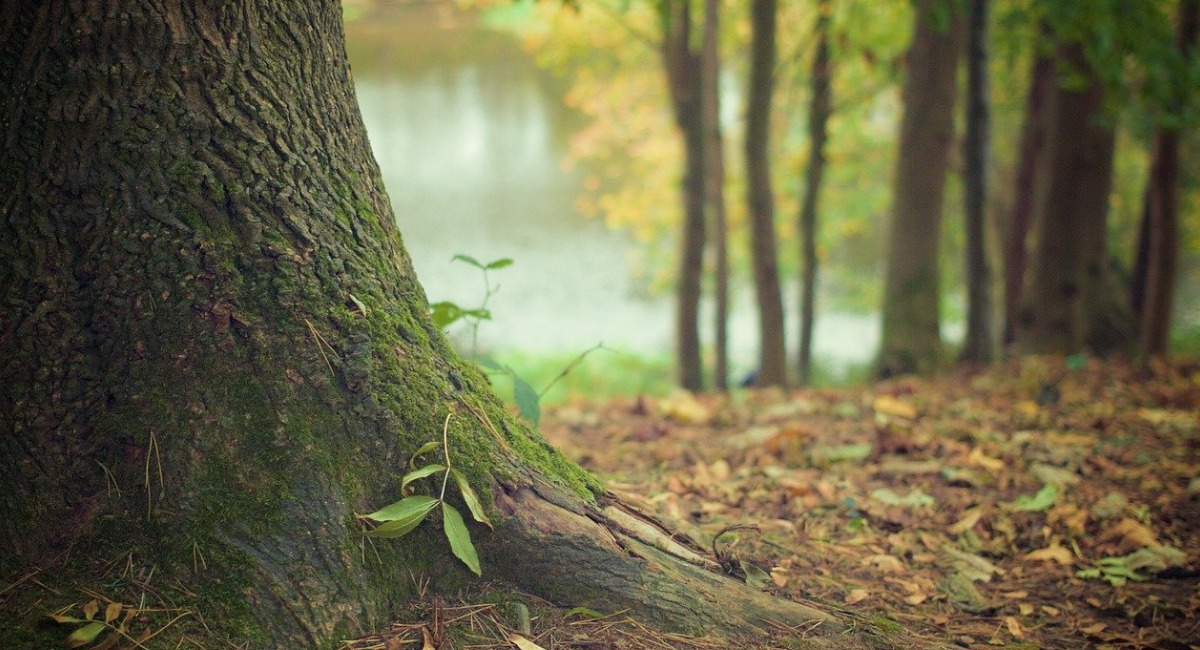Buying a Lake Lot? 14 Questions for Your Dream Property
So you’re buying a lake lot! (Or at least you’re thinking of buying a lake lot.) Congratulations! For many of us, having property near a lake is a lifelong dream.
But before you run out and buy waterfront property, there are some important things to consider. Buying lake property is a big decision. And while there are many incredible lake properties to choose from, not all of them are right for your family.
No worries! We’re here to help you choose. Read on!
Table of Contents
Buying a Lake Lot: How to Get What You Want
A few years ago, Randy and I were in your same situation. We were living in another state (Minnesota) and wanted to return to our home state of Wisconsin. Having already built two homes on raw, undeveloped land, we had some experience in how to find our perfect property.
How does a person do this?
Well, the very first thing to do is make a list of what’s important to you in the property you’re seeking. What are some must-haves and can’t-haves? With so many lake properties for sale, having a checklist will save you tons of time by weeding out the non-contenders.
The very first thing to do is make a list of what’s important to you in the property you’re seeking.
So with that in mind, let’s get to it.
What to Consider when Buying a Lake Lot
There are several advantages to living near a lake. One is the natural beauty of the area. Lakes are packed with recreation, providing opportunities for swimming, fishing, boating, and other activities.
Living near a lake can also be a source of relaxation and stress relief. There’s just something about the sound of the water and the whole lake vibe. It’s calming and uplifting at the same time.

Finally, lake life is good for your health, as there’s always plenty of physical activity and fresh, outdoor air.
But before you enjoy all these benefits, you need to choose the right lake lot. It will prevent you from buying property that doesn’t suit you and that you’ll soon regret.
Consider these very important things when you start planning:
1. Price: How much can you afford to spend for your lake lot?
The cost of a lake lot varies depending on the location, size, and features of the property. Lakefront properties are usually more expensive than those located farther back from the lake, and larger lots will be more expensive than smaller ones.
Also, some lake properties may come with additional costs, such as HOA fees, lake maintenance fees, etc. Waterfront property is typically taxed at a higher rate than non-waterfront, so consider annual property taxes into your budget. Make sure you’re aware of all associated costs before buying a lake lot.
2. Lake Access: Do you want property on the water or near the water?
Lakefront property is the hottest seller in any lake area. But maybe lake frontage isn’t available or it’s just more than you wish to spend.
If lakefront property isn’t in your budget but you still want to live near a lake, there are lots of options! Consider a wooded lot or condo in an HOA lakeside community, with its own private beaches and boat docks. Or maybe a property that borders a lake but doesn’t have direct access.
Consider how you’ll use the lake and how often. Living even a short drive from the lake might be enough to get your regular “lake fix.”
3. Essential Services: What is the distance to shopping, medical, etc.?
Depending on how you’ll use your property, some services may be more or less important to you.
If your lake lot is for only for weekend getaways, access to major shopping, medical, business services, etc. might not be a factor.
On the other hand, you’ll definitely want to consider these, if this will be your permanent home. Most lake communities are distant from large business areas that provide essential services.
Think about your own needs, and then choose your location accordingly.

4. Location: Where on the lake should you buy?
The location of your lake lot is an important decision. Are you looking for privacy, away from the other lot owners? If so, you may wish to buy a larger lot or maybe two small ones. Consider something wooded and away from the lakefront, where activity is high and there will be more people.
But if you’re hoping for a more social experience, a smaller lot may work well. Also, buy in an area that’s well populated already, and choose property that’s open and accessible.
Here’s another location consideration: Where is the lot in relation to where you want to go? Where is the nearest boat launch? The nearest store? Community clubhouse?
Will you need to drive around the lake to access everything? If you wish to be remote, that might be a good thing. It all depends on what you want.
5. Landscape: What kind of property do you want?
Also know the type of lake property you want. If you’ll use the lot for recreation, you may be happy with buying an empty lake lot for camping or RV adventures. If you plan a permanent home, will you be building or buying an existing one?

If you plan to build, make sure the lot will accommodate your house plans.
For example, the water table near the lake may be too high to allow for a basement. Likewise, a walkout-type home requires a hill or steep elevation drop at the building site.
Beyond that, consider the lot itself. Do you want something raw and untouched? Or do you want it ready to “plug & play” – meaning it has a driveway, electricity available and a place cleared and ready for your camper or building.
Remember that a raw, undeveloped lot will be less expensive. If you can improve it yourself, you can save thousands of dollars!
But if you pay someone to do it for you, you’ll end up spending those same thousands AND having to orchestrate everything. In that case, you’d be better off buying a lake lot that’s already developed.
6. Timing: When will you buy the lake property?
The least expensive time for buying a lake lot is usually during the offseason. This is typically in the late fall or winter, when sales are slower. Lake properties are often discounted – or the seller may be open to negotiation.
By buying during the offseason, you could get a better deal on a lake lot and avoid the crowds. Plus, if you’re buying a wooded lot, you can better see the contour of the landscape because there are no leaves or brush to block your view.
On the other hand, spring and summer have their own merits. With trees in full leaf and ice off the lake, you’ll really be able to appreciate what you’re buying. Plus, you’ll be able to immediately enjoy all the lake has to offer. You can go right from closing your purchase agreement, straight to your new lake lot!

7. Maintenance: How much time and expense will the property take to maintain?
Buying a lake lot is a big responsibility – it will need to be mowed, trimmed, and have general upkeep on a regular basis. If you’re not able to do this yourself, then you’ll need to hire someone to do it for you.
Consider the lot and what it will take to maintain. What are you willing to invest to make that happen?
8. Utilities and Services: What utilities and services will be available for your lake property?
Lakes are usually found in more remote, rural areas. So you may find that technology and other services are limited.
Is high speed internet important to you? Write it on your list. What about natural gas vs propane gas? Or city sewer and water vs a septic system and well? These are all huge decisions that will affect your buying choices.
Questions to Ask When Buying Lake Property
The above list is all about the planning stage. It’s for you to narrow down your choices and find the lake property that fits you perfectly.
The questions that follow are for when your dream property is found! Now it’s time to chat with your realtor or the city office where your property is located.
9. Does the lake have a history of flooding?
Flooding is always a risk when living near a lake, so it’s important to find out if there is a history of flooding in that area. You may also want to ask the local municipality about their floodplain maps and find out what kind of precautions you need to take (e.g., purchasing flood insurance).

10. Are there any restrictions on how you can use your lake property?
Some lake lots may come with “covenants and restrictions” on how you can use the property. They might not allow you to build a permanent structure on the lot, or they may have rules about how close you can be to the lake. Make sure you’re familiar with any restrictions on use before buying a lake lot. This could prevent an unhappy surprise!
11. Are there any HOA or other fees associated with the lake property?
If the lake lot is part of a subdivision, there may be an annual homeowners association (HOA) fee. This fee pays for things like road maintenance, snow removal, and trash pickup. An HOA can provide lots of amenities you’ll be happy to have, but make sure you know that going in. Ask the seller about any HOA fees before making an offer.
12. What kind of dock can you build?
Many people who buy lake property want to install a dock. It’s the perfect spot to fish, relax with a book, enjoy a cool drink, or take a swim.
Before buying a lake lot, find out what kind of dock is allowed on the lake property. Some lakes have regulations about the size and type of dock that can be installed.
13. What zoning regulations are in place for lake lots in the area?
Zoning regulations also vary from one municipality to another, so it’s important to find out what kind of zoning regulations are in place for your lake lot. For example, some municipalities may not allow you to have a business on the property, or they may have regulations about the types of structures you can build – and how long it takes to build them.

14. Are there any regulations or restrictions on lake use?
In some areas, there are regulations about how people can use the lake. For example, you could be limited to using the lake for swimming, fishing, or boating – or you may not be allowed to use the lake at all! (That would be a total deal breaker in my book.) Make sure you’re familiar with any regulations on lake use before buying a lake lot.
Are You Ready for Lake Life?
Lake lots provide a unique and wonderful opportunity to own property in an area that’s often associated with relaxation, fun, and adventure. Before you buy a lake lot, it’s important to carefully consider why you’re buying and the features it must have.
Ask some questions about the history of flooding, restrictions on use, HOA fees, and more. By knowing what to expect ahead of time, you can avoid any unpleasant surprises down the road!








One Comment